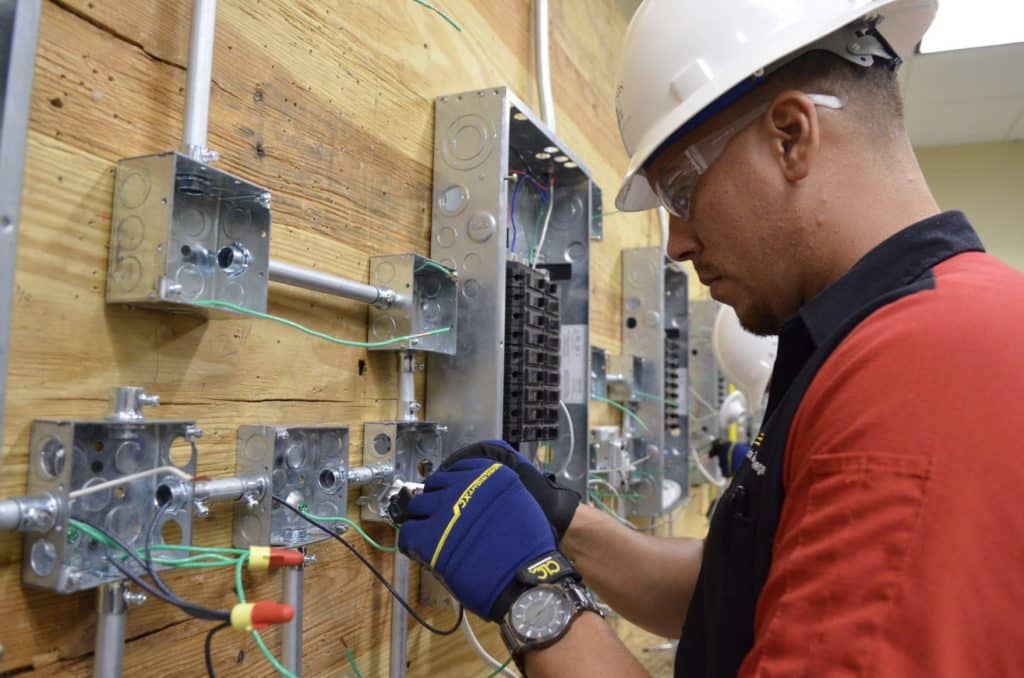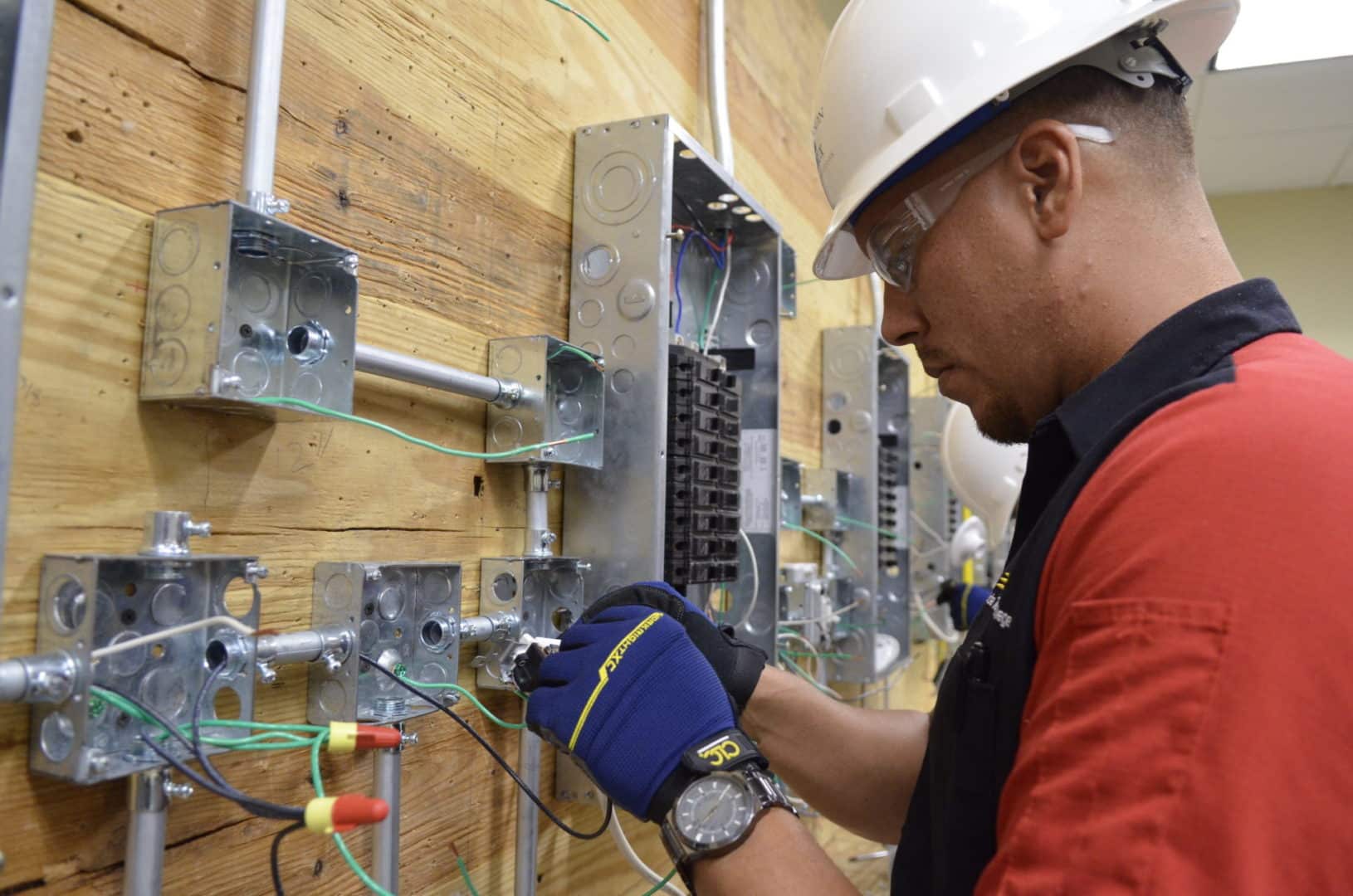Florida Technical College Expands its Electrical Diploma Program to Deland and Pembroke Pines Campuses
Registration is currently in progress for fall classes
ORLANDO, FLA, August 17th, 2017 — Florida Technical College is expanding its Electrical Diploma Program to its Deland and Pembroke Pines campuses. It is part of a carefully selected group of programs that Florida Technical College offers in the construction trade and technology sector.

“What makes this program so successful are the experienced instructors and the fact that our classes are small, allowing for more individualized training,” said lead instructor Roberto Cruz, who oversees the program. “Our students learn from people who have been working as electricians for 20 years or more and use the same tools and equipment that they will encounter in the workplace.”
This Electrical Diploma program encompasses the fundamental skills of the electrical trade, such as its history, safety, tools, understanding circuits, reading codes, installation, bending conduits, and testing equipment. It also offers classroom work and lab training in advanced skills of the electrical trade, such as load calculations, health care facilities, emergency, and specialty systems, and crew leadership. For additional information on the program’s offerings, go to www.ftccollege.edu.
The construction industry in Florida continues to be an important economic engine that adds thousands of jobs to the economy. Between June 2016 and June 2017, 32,400 jobs were created in all areas of construction, including electrical, according to the Associated General Contractors of America of Labor Department’s report. This growth represents a 6.9 percent increase from the previous year.
“This sustained growth is one of the main reasons to expand the program,” said Florida Technical College President Dr. James Burkett. “We’re developing a workforce that will meet the demands of the labor market. The jobs are out there. We want our students to seize that opportunity.”
What are Electrical Courses?
Electrical courses are training courses that teach you how to do a job or master the electrical trade. Different courses focus on different industries, careers, and skill sets. Instead of completing academic classes unrelated to your career, you focus entirely on your electrician career. These electrical courses are usually taught at vocational schools, which may be online or in-person. After graduating, you will receive a certificate, diploma or degree of completion. This indicates to your future employer that you’re ready to start working as an electrician technician.
What’s the Difference Between Vocational School, Community College, and a Four-Year Degree?
Some community colleges offer vocational style classes, but many are electives that go toward a 4-year degree and not a complete program intended to train you for a vocational career.
The overall focus of a community college is very different from a vocational school. With a community college, classes are focused on helping students transition to four-year schools. Even students who aren’t interested in university are often pursuing two-year degrees. These can be a time intensive and a source of frustration. With a four-year degree, you take elective classes in addition to your core classes. The focus is more on academia and knowledge than on learning a vocation. There is nothing wrong with that, but it definitely is not for everyone.
Students who attend four-year schools often talk about feeling directionless and lost after graduation. They know what they majored in, but they aren’t sure how to turn that knowledge into a career. They’re entering a workforce where a degree is not worth as much as it used to be.
When you sign up for classes at a vocational school, you only learn what you need to know. Courses are tailored to your career or industry of choice. The best part is that most vocational programs can be completed in a year or less, since you’re only focusing on practical information.
How Vocational School Prepares You for a Career as an Electrician Technician
Vocational schools are places where you can pick up one the electrical trade. Since you’re focusing on that one thing, you have the opportunity to master it. The electrical courses are focused and efficient. The goal is to teach you what you need to know, and nothing you don’t need to know, in the shortest time frame possible. By the end of the program, you will be confident in your next career steps.
Ready to move from the classroom to a career? Florida Technical College is here to help. Contact us to learn more about completing the electrician diploma program at Florida Technical College.
For additional information on Florida Technical College’s Electrical Program, call 321-684-4024 or visit www.FTCcollege.edu. Programs vary by location
About Florida Technical College: Founded in 1982, FTC provides private, post-secondary education in specialized fields. FTC offers associate and bachelor’s degrees and diploma programs in a range of professions, including healthcare, computer networking, graphic design, criminal justice, culinary arts, and cosmetology. Program availability varies by location. FTC campuses are located in Orlando, Lakeland, Deland, Kissimmee, Pembroke Pines, and Cutler Bay. Important information about educational debt, earnings, and completion rates of students who attended this program is available at www.ftccollege.edu/disclosures.html
*These examples are intended to serve only as a general guide of possible employment opportunities. There are many factors that determine the job an individual may obtain and Florida Technical College cannot guarantee its graduate any particular job. Some positions may require license or other certifications. We encourage you to research the requirements for the particular position you desire.



